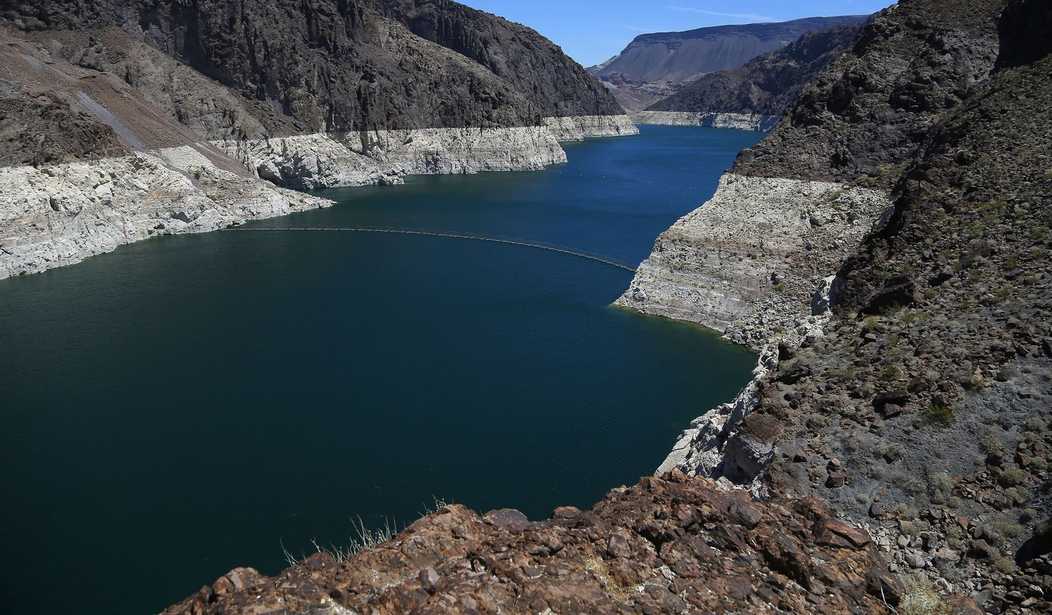If you’ve seen any pictures of the Colorado River over the past year or two, you’re probably aware that it has dried up to a relative trickle in many places. An ongoing drought has led the seven basin states that draw from the river (along with Mexico) to increase the amount of water they have been extracting. Now the river is almost empty. This week, the Interior Department issued a stern warning to all of the impacted states, saying that they would give them “one last chance” to voluntarily come up with plans to reduce their water usage or Uncle Sam will step in and do it for them. The anticipated move would impact how much water is released from Lake Mead and Lake Powell on a regular basis. (Government Executive)
In theory, the federal government can unilaterally cut water deliveries from the Colorado River’s two main reservoirs, Lake Powell and Lake Mead, which release more than 2 trillion gallons of water to farms and cities across the Southwest each year. In reality, this has never happened: Previous cuts have always been negotiated between the federal government and the seven states that use the river.
Late last week, however, the federal government sent its strongest signal yet that it is willing to single-handedly impose water cuts on the Colorado for the first time in history, as the U.S. West stares down the consequences of a climate-change-fueled megadrought that has parched the river.
The Department of the Interior, the federal agency that manages water in the Colorado River basin, announced on Friday that it would look into changing the rules for how it operates Lake Powell and Lake Mead, which are located in southern Utah and southern Nevada, respectively.
If this were to happen, the most heavily impacted states would be Arizona, Nevada, and California. If the water supplies are further slashed to keep the lakes from falling below critical levels, the farming industry in northern California will be essentially out of business. It’s debatable whether there will even be enough drinking water for everyone in California under those conditions.
It’s not just water itself that will be lacking. If Lake Mead and Lake Powell drop down another ten percent or so, the water will not be high enough to keep turning the rotors at the massive hydroelectric dams located at the base of each lake. Those plants produce more than 25,000 gigawatt-hours of electrical power. More than ten percent of California’s electrical energy is hydroelectric. We’re already in the early phases of a serious energy crisis and this would only make it worse.
This threat from the Department of the Interior raises another serious question that the country has never really had to deal with before. It’s widely acknowledged that the federal government has the power to impose restrictions on those water supplies, though they’ve never had to resort to such measures in the past. (The states typically regulate usage themselves.) But we’re talking about water here. It’s the most critical element to human survival.
Can the federal government simply cut off or significantly reduce the amount of water flowing into these states? And what do they say if they do it? Sorry about that, but there’s just not enough to go around. We don’t have any idea where you’ll get your drinking water now, but you’re on your own.
Without access to drinking water, people die. Doesn’t the federal government have an obligation to make sure that doesn’t happen if it’s at all possible? And what if it’s not possible? What if the drought continues and the lakes never fill back up for a generation or more? Perhaps its time for residents of the west coast to be reminded that significant parts of California are actually a desert and droughts were happening there long before people settled the region in massive numbers. We’ve been artificially making those regions into farmland for a long time, but that simply may not be sustainable in the near future.








Join the conversation as a VIP Member